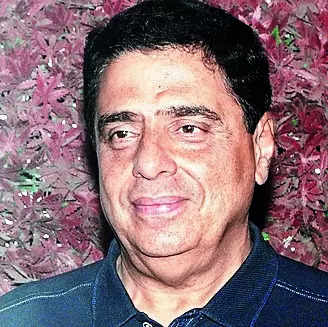
At a time when most film production companies are looking to raise capital, Screwvala said RSVP will utilise its cash reserves for funding its projects and does not plan to scout for external funding.
RSVP, which has produced about 40 films and web series, owning the IP (intellectual property) for most of the releases, is aiming to produce three to four films a year.
Calling RSVP Movies a passion project, Screwvala said the film production company produces all types of films with budgets ranging from ₹1 crore to ₹100 crore. The company has also produced web series like ‘Mismatched’ and ‘Lust Stories’.
Screwvala termed the future of the content production industry as “phenomenal” but noted that producers need to increase their risk taking ability. In recent years, a mix of lack of creative storytelling and funding challenges have put a pause on new film projects.”It’s just that we have to open up our minds and we need to be risk taking. The day we stop taking risks, it’s a problem. Which is what is happening right now,” Screwvala said, adding past failures should not act as a deterrent for filmmakers to produce great content for audiences.PVR Inox MD Ajay Bijli had also earlier called upon filmmakers to make high quality content for the big screen to encourage audiences to continue returning to the theatres. India is one of the biggest film producing markets with 1,500-2,000 films getting released each year across languages.
Screwvala is also bullish about the sports business in India with U Sports-part of his Unilazer Ventures, owning sports franchises in Pro Kabaddi League (PKL), Ultimate Table Tennis (UTT), and Global Chess League (GCL).
While his PKL team is successful and profitable, the other two franchises are still in the investment phase.
Screwvala bemoaned the fact that PKL is not able to realise its full potential and create more value for stakeholders due to its ownership by a broadcaster, Jio Star-earlier Star India-which owns 74% stake in Mashal Sports, the owner of PKL.
While praising Jio Star for building the league, he said broadcasters should ideally not own a sports league because it leads to a conflict of interest which deters rival broadcasters from participating in media rights bidding.




































